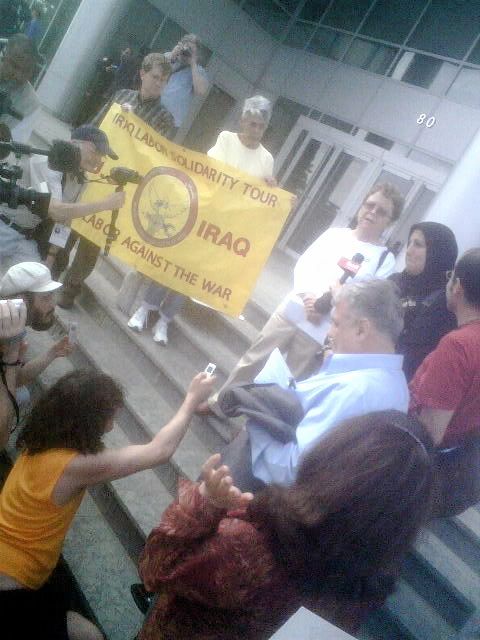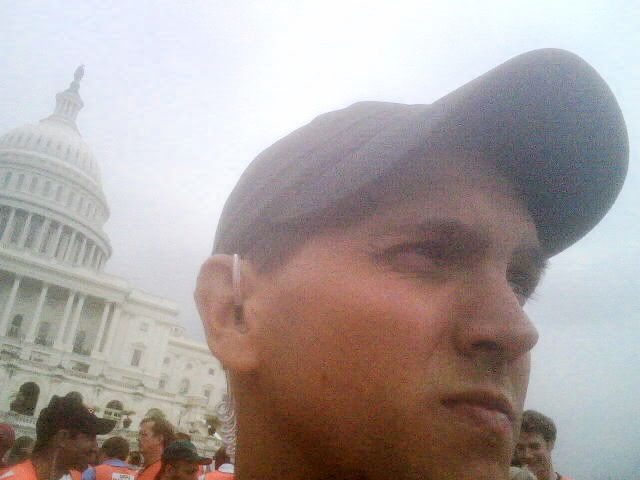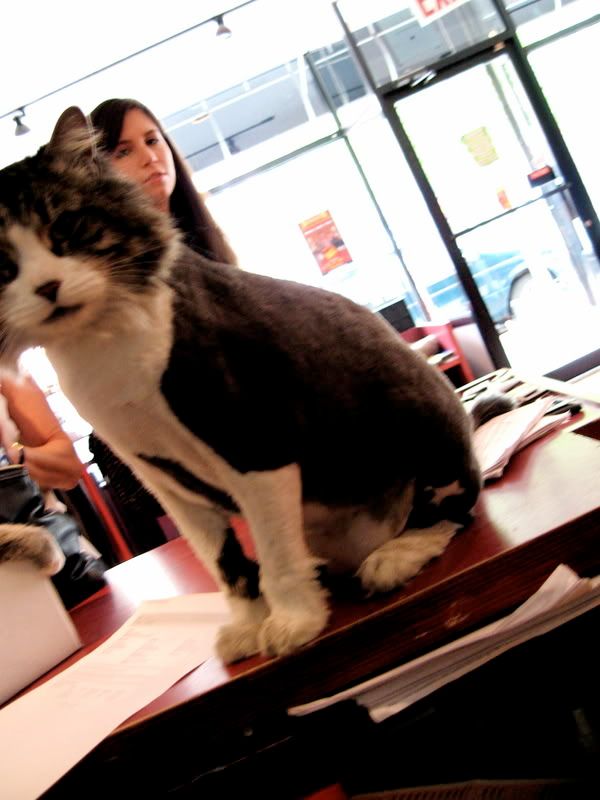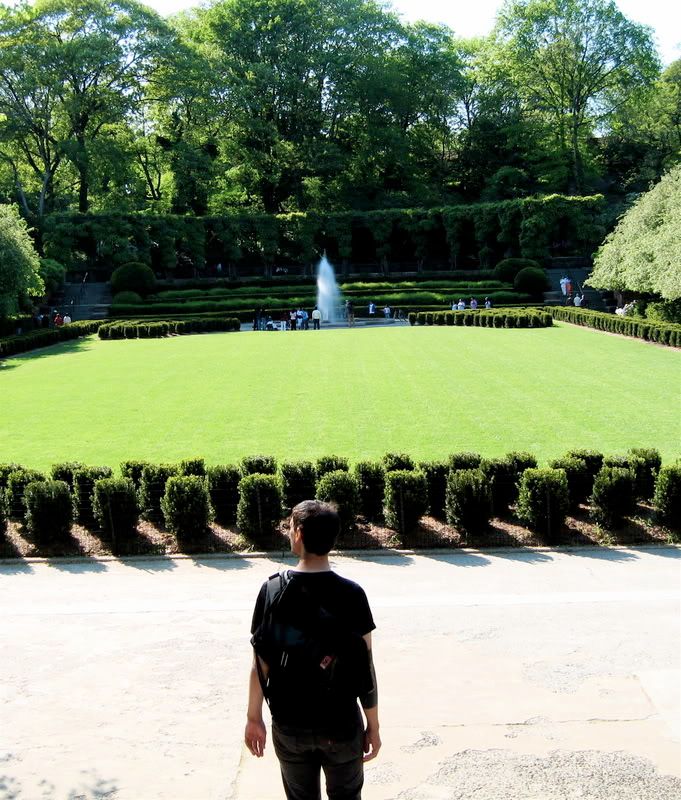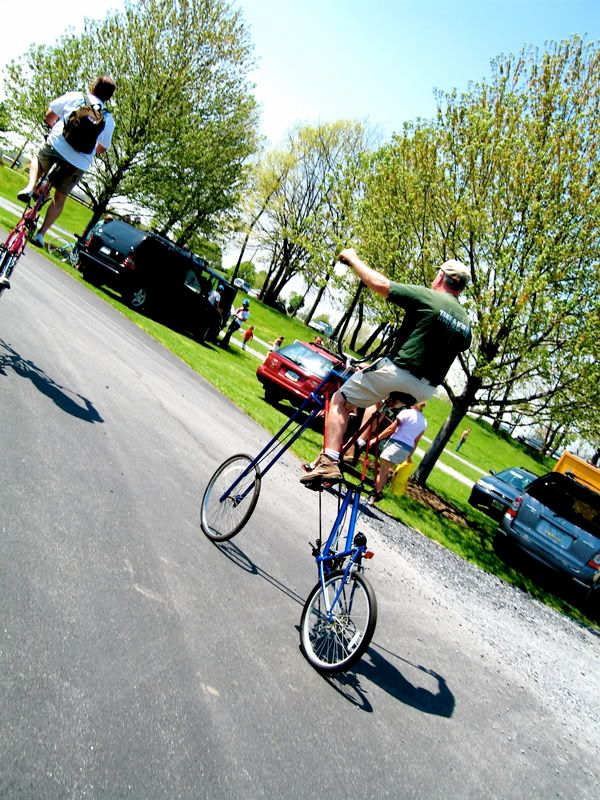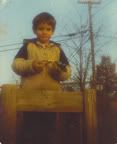
Someone IM'd me this morning, to ask why I don't write here anymore. There are a number of things I could cite as explanations; none of them seem worth sharing, but alas... She asked.
For starters, I haven't really had time. Nor have I felt terribly reflective. There hasn't been the sort of me-time required for adequately sorting out ideas and experiences, much less unpacking in them in some worthwhile visual, here. It's called managing the unmanageable. The moments at which I stop myself and just take in my surroundings and how absolutely unique and unlikely it is that I arrived at a given point and place in time, without any reference to next moment, or what I might need to do in that moment... Those are negligibly few. I've become relatively oblivious to details and it's evident in virtually every dimension of my waking hours. Work, friendships, relationships, everything.
And there's a trajectory to account for, as well. Just over six years ago, I moved back to DC from Seattle, resurrected a relationship in relative tatters, and embraced the trainwreck of a life I'd walked away from a few months prior. This is where my dogwalking began, this is where I moved into Casa del Ajo, this is where I began studying at the ISE, this is where I began touring heavily and traveling the world, this is where I ultimately felt so animated by what had emerged therein that I got married. And one New Year's Day, I accepted that much of it had dry-rotted, and I cut myself loose. Everything that stood between the worst moments of my life and my present kinda went the way of vapor.
I began this blog in the aftermath; in the clearing that I woke up to each morning, attempting to document the things I would build there. Brighter Days was built, shoring up my material life in new ways and sort of catapulting me into an altogether different relationship with age etc. A new relationship began, and in turn found me moving from my house on Capitol Hill to an apartment in north Dupont; yet another significant leap in what I'd like to understand as a progressive narrative. There seemed a real unfolding (forward, mind you) worth documenting.
Now, that relationship has come to a rather complicated end, I'm moving out of the apartment, and have the distinct sense that I'm doing nothing terribly well. I read a few pages here and there when I wake up in the early morning and can't coax myself back to sleep. The energy I put into work has the feel of self-preservation (rather than creativity), and creative scope of my actual life feels constrained in ways that I can't really account for. It all sort of snuck up on me.
It's difficult to muster the desire to render concrete those sorts of inklings, in a format like this. I've been slowly working up the courage to recognize that I've ultimately got to begin again; that this chapter, like every other, has insisted upon its own closure and has demonstrated a rather marked indifference to my need to understand the passing my time as progressive. I very well may not be improving upon myself in ways I want to publicly celebrate. I may just be fucking up, necessary as it may be, for now.
So, here's the skinny, kids: I've been invited to live as an "artist in residence" at the Dharma House a number of folks have set up, here in DC. Part of this is deeply personal; at this point in my life, I feel a real need to deepen my practice. The reasons are manifold, and equally difficult to give words. For starters, I struggle -- daily -- with an often crippling self-hatred, and that shit about not being able to love others without adequately loving oneself is no joke. It's done things to me that I never would've imagined possible. Really digging in and working with that is going to be pretty ugly, I gather. So, I want the space to be able to drop everything and deliberately tend to that, as needed; I want to be able to stake out moments of my day as a sort of retreat, and really give myself to the practice. And I want to be surrounded by people willing to gently call me on dodging it. It bares mentioning that those of you (friends) that have voiced support and excitement about this have enabled me to exhale in a certain way. I've inhabited a certain anxiety about both the stigma I might invite by "coming out" about this dimension of my life, not to mention the way the disclosure of this internal struggle might cast my relationships with certain people in a suspicious light (at very least, the transparency of said relations; I haven't exactly advertised to friends that this struggle cuts across most everything in my life.). So far, that hasn't been the case; everyone seems to find their own reasons for being excited about this step.
Additionally, my role in the house will largely involve coordinating workshops, seminars, study groups, etc. that offer a challenge toward radical, organized social transformation among (what we call) "convert buddhists" here in DC, and (hopefully) new points of interrogation for anarchists, leftists, etc. here. We'll see how that goes; there's certainly some transition afoot in radical circles locally, and opportunities abound for a bit of re-making of ourselves.
Toward that very end, Denman and I will be heading to Chiapas (Mexico) at the end of March, to begin a month in Zapatista territory, mostly studying at the Zapatista Language School. Thereafter, we'll be busing up through the country (with stops in Oaxaca City and Mexico City) , and on to LA and San Francisco. Finally, we'll make our way back across the country via train, with stops in Chicago and Mississppi. If you think we'll cross your path, let us know.
Just in time for all of this, I'll bring this blog to a close, in favor of a proper website that'll probably resemble a bit more of a zine than journal. Once that's live, I'll post an announcement as a final entry here. Until then, be well.

